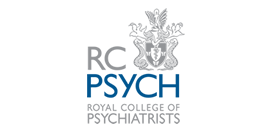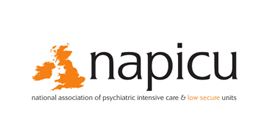
This ‘feeds’ the obsession and so the cycles become more frequent and can, if left untreated, disrupt a person’s ability to get on with everyday life.
are a singular persistent, repetitive urges or thoughts that enter your mind, that are hard to control or get rid of, often triggering feelings of anxiety or disgust. Common obsessions are fear of contamination (for example germs, dirt, bodily fluids), worries about something happening (such as doors being locked, cookers not being turned off, lights being turned off), hoarding, sexual urges and excessive preoccupation with order, tidiness or symmetry.
Compulsions can be thought of as rituals. They are repetitive behaviours - physical (like washing or checking) or thoughts (saying or repeating a certain phrase) that an individual must carry out to mitigate the risk of harm brought on by the obsessive thought. Compulsions usually match with an obsession, for example, the fear of contamination leads to compulsive washing or cleaning.
Compulsions are not complete when the action has been carried out, but when a person feels that the anxiety has subsided or that the danger has passed. This kind of judgement is usually used when a person makes a huge decision such as moving to a new country, buying a house or deciding to have children. People with OCD use this every single day, which illustrates just how much this disorder can physically and mentally affect an individual’s life.
The main approach of treating OCD is psychological therapy to help build up emotional and mental resilience. This can help individuals face their fears and obsessive thoughts without feeling the need to solve them. In cases of severe OCD, medication may also be prescribed in the form of antidepressants to help balance the chemicals in the brain.
Once diagnosed with OCD, your therapist or support worker may suggest cognitive behavioural therapy (CBT). This form of therapy focuses on addressing and changing how our behaviours and feelings are affected by our beliefs and attitudes. It gives individuals the skills to cope with a variety of problems that they may face- essentially changing limiting beliefs and mindsets and building up our resilience.
We can help you change your own reaction to stress by suggesting a range of both medical treatments and talking therapies such as cognitive behavioural therapy. This can be useful to help understand our own thoughts and behaviours contributing to your distress and help to lift your mood by changing the cycle of negative thinking.
MD, FRCPsych, DPM, Msc, MBBS
Consultant Psychiatrist and CBT Specialist


Dr Pereira helps patients to meaningfully understand, make peace, develop insight and let go of the past – to be precise, clear, connected, resourceful, calm and engaged with the present, in order to release mental space, energy and contentment for the future.
Established private practice
in the City of London
since 1993












